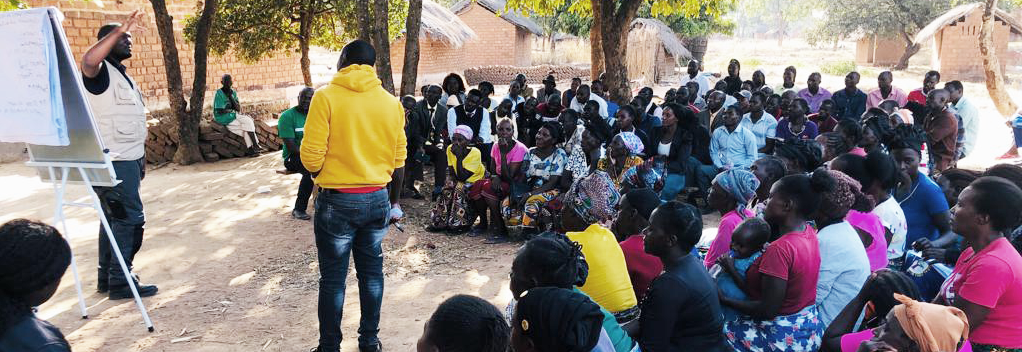Early in February, there were signs that construction will begin soon for the solar-powered mini grid that will provide electricity to members of the Ntatumbila Power Electric Cooperative Society, Zambia’s first electric co-op. In July 2023, the board of directors was elected during the inaugural general assembly.
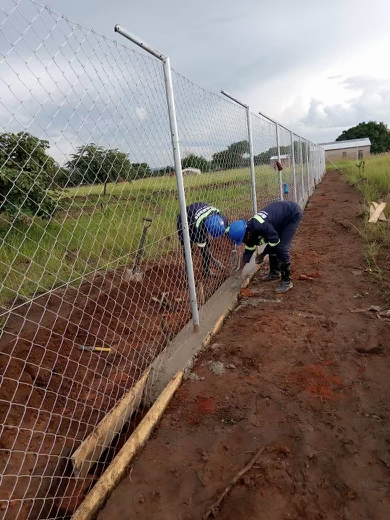
Making Connections
In November 2023, Miles Kuschel, board chair for Todd Wadena Electric Cooperative in Minnesota, traveled to Zambia’s capital Lusaka. He volunteered to support NRECA International’s Zambia Electric Cooperative Development Program (ZECDP) team, to give these directors the tools and resources they need to successfully govern the new co-op. He also conducted a “train-the-trainer” session for the staff at the Rural Electrification Authority’s (REA) team, so they have the capability to train future electric co-op leaders. He immediately noticed many similarities between Todd Wadena and the new Ntatumbila co-op.
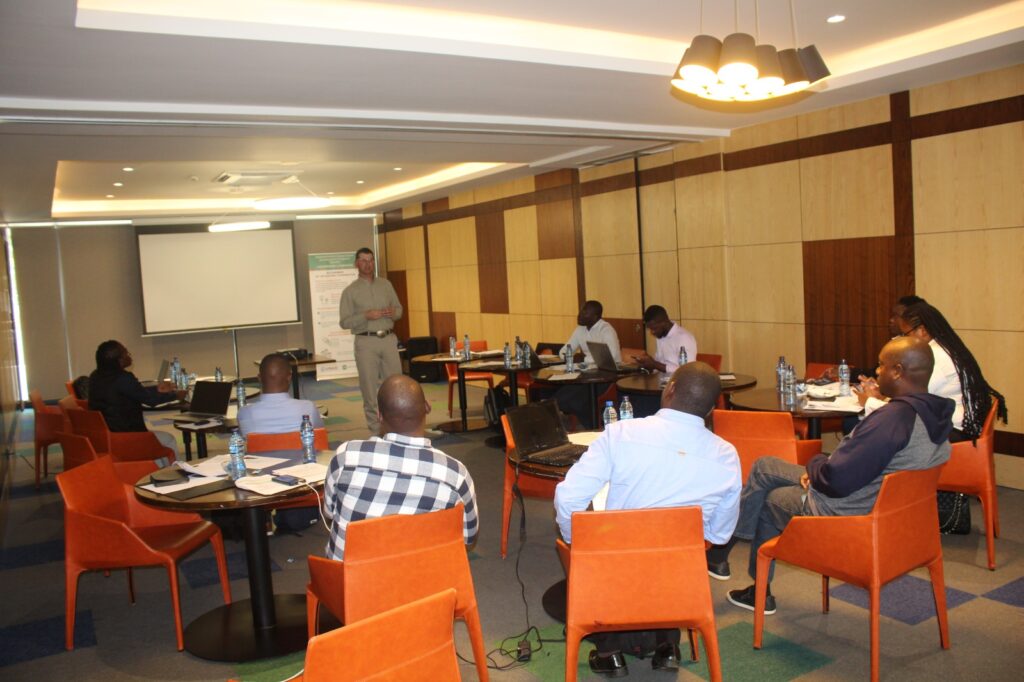
“Their board make up is similar to ours with a teacher, registered nurse, farmers, business owners, the resemblance is uncanny,” said Kuschel. “When Todd Wadena was formed, it cost $5 to become a member, and it’s the same for this Ntatumbila co-op. They are starting at the same spot we did; the growing pains will be the same, and keeping the community involved will be a huge priority.”
Around the same time, Dwight Miller, Director, Safety Training & Loss Prevention for Ohio’s Electric Cooperatives, and Blake West, Engineering Supervisor for Guernsey-Muskingum Electric Cooperative from Ohio, arrived in Freetown, Sierra Leone to provide safety and operations training to local lineworkers employed by Energicity, a mini grid developer based in West Africa. These two volunteers also felt a connection.
“Linemen hold a special bond in this world, and getting the opportunity to share some of the knowledge we have with those who don’t have access to it is something that I hold dear to my heart,” said West. ‘The group we worked with may be thousands of miles away, yet I felt a connection to them through the brotherhood of linemen.”
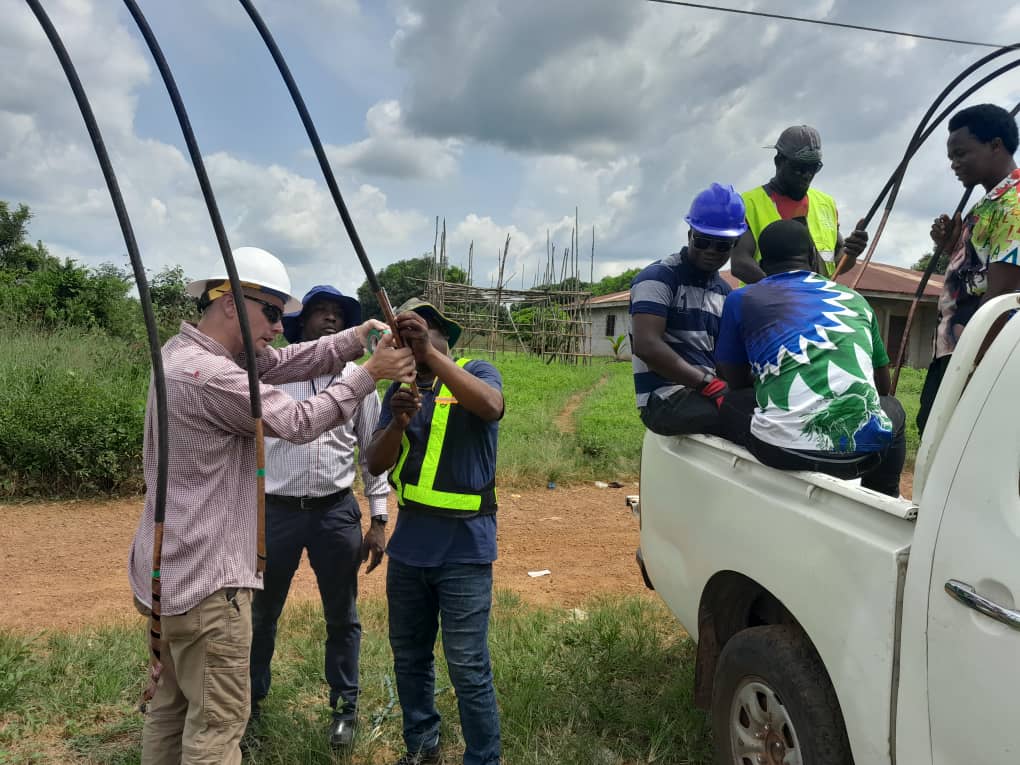
Cooperation Among Cooperatives
These three volunteers continue the long tradition of American electric co-ops supporting NRECA International’s mission to bring electricity to communities around the globe.
For the board members from Ntatumbila, Kuschel went back to basics, bringing him back to the days when he himself received board training. Topics he covered included introducing the co-op business model, the role of the board, how to conduct membership meetings, and the relationship with the co-op general manager and staff. Leadership styles for cooperatives was explained, as well as the need for the utility to run independently. The importance of community engagement was emphasized, with a focus on how to take advantage of strong and critical voices in the community.
“Communities themselves will present their own challenges and opportunities,” said Kuschel. “The board candidates who didn’t get elected are going to be either supportive or critical. So, it is important to get them involved.”
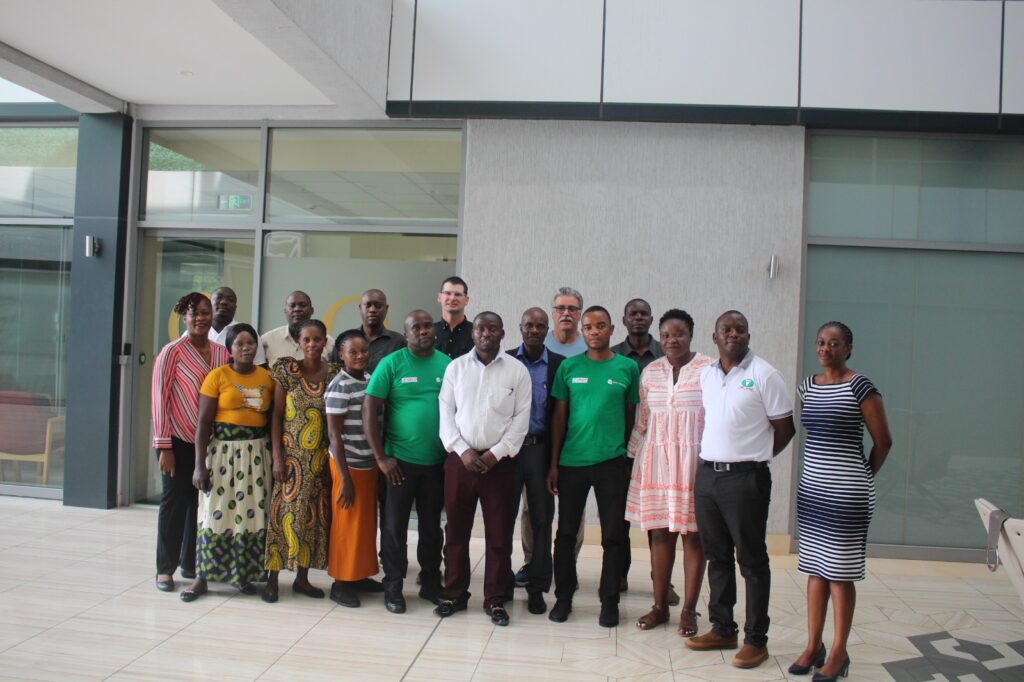
In Sierra Leone, the two volunteers teamed up to provide basic lineworker training that included safety and first aid. Upon arrival, they quickly learned the training would look much different than anticipated in part due to the lack of basic safety equipment.
“These technicians who are responsible for working on the mini grids literally had an aluminum ladder, chemical gloves for rubber gloves, a wrench, two grips, and a very suspect cable hoist,” said Miller. “We learned that they didn’t know how to work on their own primary systems, so we spent multiple days in the classroom and field teaching them basic skills with items we brought with us. Training included termination of primary shielded cable which they had been running on their IEC-style overhead systems.”
They also helped troubleshoot the cause of an extended power outage, which became an opportunity for valuable hands-on training and show the local lineworkers how to repair and restore the power system. It became a game changer for the local team.
“It was honestly one of the greatest satisfactions I’ve experienced in life. Blake and I gave them everything we had for two weeks, and simply taught them how to safely do the job on the poles and on the ground, and they felt so empowered,” said Miller.
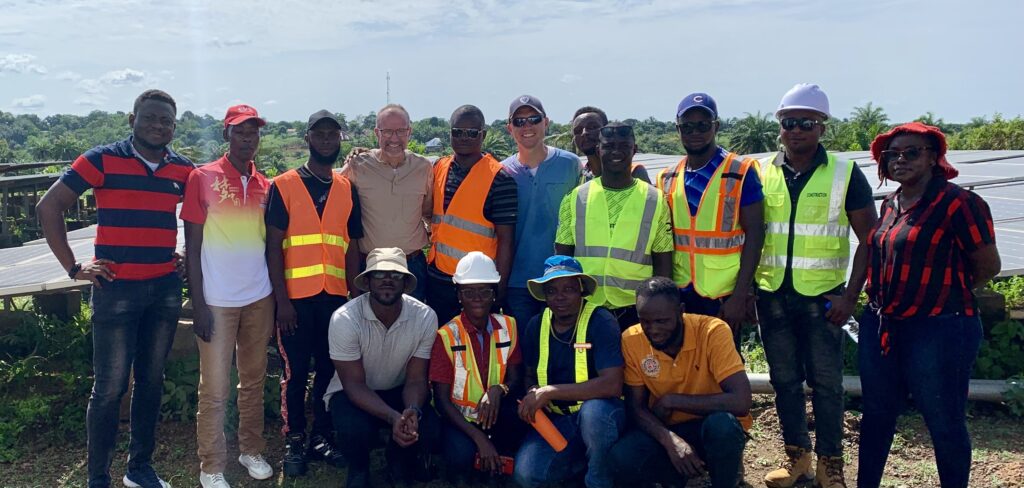
Helping Cooperatives Succeed
Back in Zambia, Kuschel is optimistic. He hopes that there will be additional training on accounting, operations, member services, and believes that it’s just a matter of funding and building capacity.
“Funding is always needed. The people here have the capability to do this, their level of education is high, they’re super intelligent, and they are eager to learn,” he said. “I hope we can continue to help, and that other co-ops will have the willingness to send staff to help with training.”
He also points out that the Ntatumbila electric co-op is off to a great start.
“If you could design the best system from scratch they have it, but that is just one of the tools that will help Ntatumbila,” said Kuschel. “Along with leadership skills and ongoing training will ensure the co-op model is successful no matter where you are in the world.”
